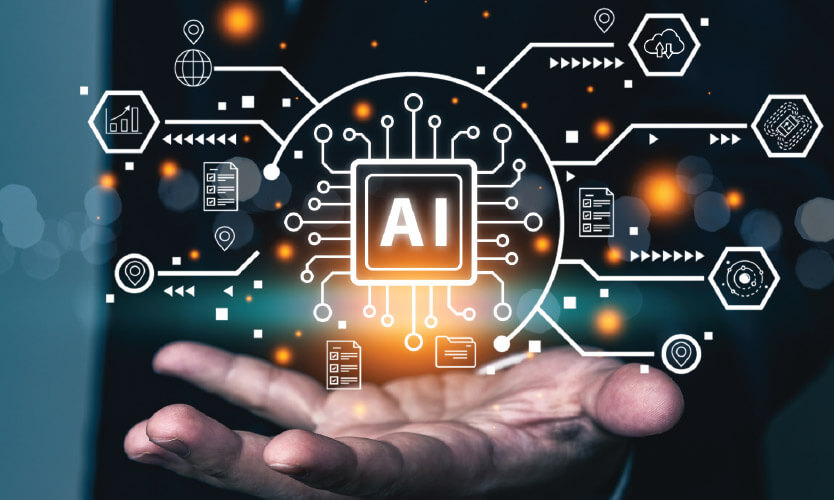Remember a few years ago when Artificial Intelligence (AI) felt like something straight out of a futuristic movie? Well, guess what? The future is officially here. AI isn’t just for tech geniuses and sci-fi geeks anymore. It’s in our pockets, our homes, and pretty much everywhere we look. It’s the silent force behind so much of our daily lives, and if we’re honest, it’s a little bit incredible, and a little bit scary.
But what does AI actually do for us? And is it really a good thing? Let’s talk about how this technology went from being a cool concept to being a core part of how we live, work, and play.
The AI in Your Pocket

Seriously, think about your phone. That little device in your hand is an AI powerhouse. Every time you ask Siri or Google Assistant a question, you’re using AI. They’re not just pre-programmed to answer; they’re constantly learning to understand the way you speak, your quirks, and even the context of your questions. It’s a bit like having a digital brain that’s getting smarter every day just by listening to you.
And have you ever noticed how platforms like Netflix and Spotify seem to know exactly what you want to watch or listen to next? It feels a little spooky, right? That’s all AI. It’s meticulously analyzing your habits—what you watch, what you skip, what you “like”—and then it uses that information to create a personal profile of your taste. It’s a never-ending cycle of recommendations, and it’s pretty amazing how good it’s gotten at keeping us hooked.
The Big Impact You Don’t Always See
Beyond our personal gadgets, AI is making huge waves in some of the most important parts of our lives.
Healthcare: A Doctor’s New Best Friend
AI is changing medicine in ways we could barely imagine a decade ago. It’s helping doctors find diseases like cancer much earlier than before by analyzing X-rays and scans with incredible speed and accuracy. It’s also speeding up the search for new medicines. Instead of spending years on trial and error, AI can sift through massive amounts of data to find potential new drugs in a fraction of the time. This is not about replacing doctors; it’s about giving them a super-powerful tool to help them make better, faster decisions.
Driving: Taking a Load Off Our Minds
The dream of self-driving cars is getting closer to reality, but even now, AI is making our cars much safer. Features like adaptive cruise control, which automatically keeps a safe distance from the car in front of you, and lane-keeping assist, which gently nudges you back into your lane, are powered by AI. It’s taking some of the stress out of our daily commute and making our roads safer for everyone.
Finance: Protecting Your Money
Have you ever gotten an alert from your bank about a suspicious transaction? That’s AI at work. These systems can analyze millions of transactions in an instant to spot unusual patterns that could signal fraud. It’s a bit like having a digital security guard watching over your account 24/7. It’s fast, it’s effective, and it’s a big reason why our money is safer than ever before.
But What About the Future?
While all this is truly exciting, it’s also a bit unsettling. The big question many people have is: will AI take our jobs? It’s a valid concern. As AI gets better at handling routine tasks, some jobs might change or even disappear. But just like past technological revolutions, new opportunities will be created. We’ll need people to develop, maintain, and manage these AI systems. The key is to see AI not as a competitor, but as a new kind of partner.
There are other things to think about, too, like privacy and bias. Since AI learns from data, if that data has human biases (which it often does), the AI can end up being unfair. We need to be careful and intentional about how we build these systems to make sure they’re fair and ethical for everyone.
Ultimately, we are at the beginning of this incredible journey with AI. It’s not just a tool; it’s a new chapter in human history. It will continue to change the way we learn, work, and interact with the world around us.
So, what do you think? Do you notice AI’s presence in your own life? How do you feel about it? Let’s talk about it in the comments below!
Leave a Reply Cancel reply